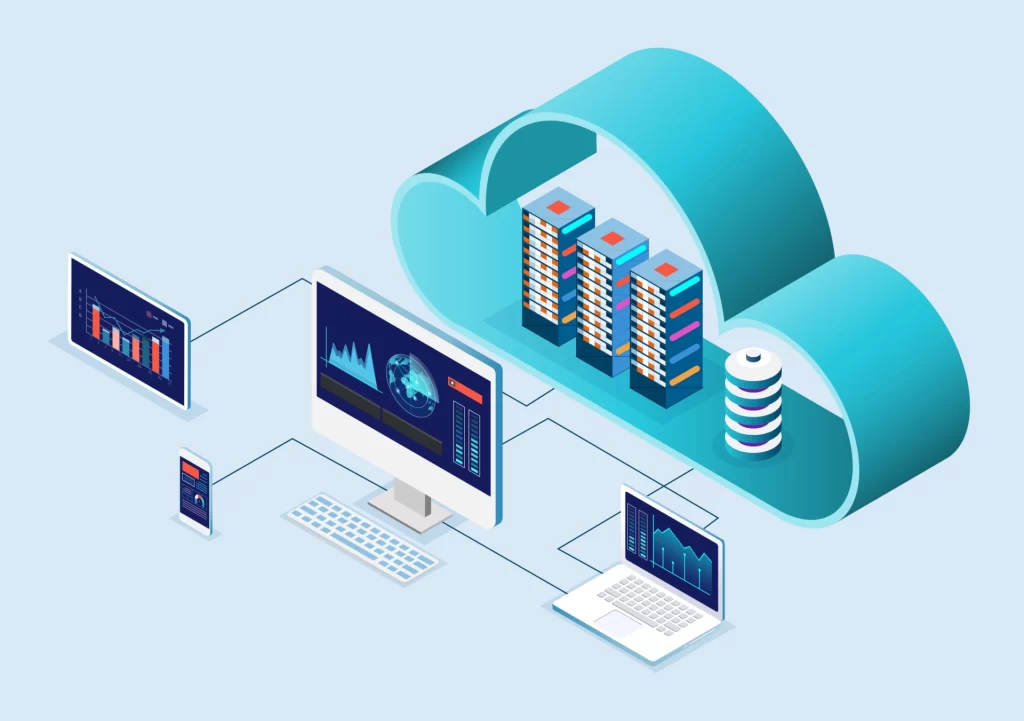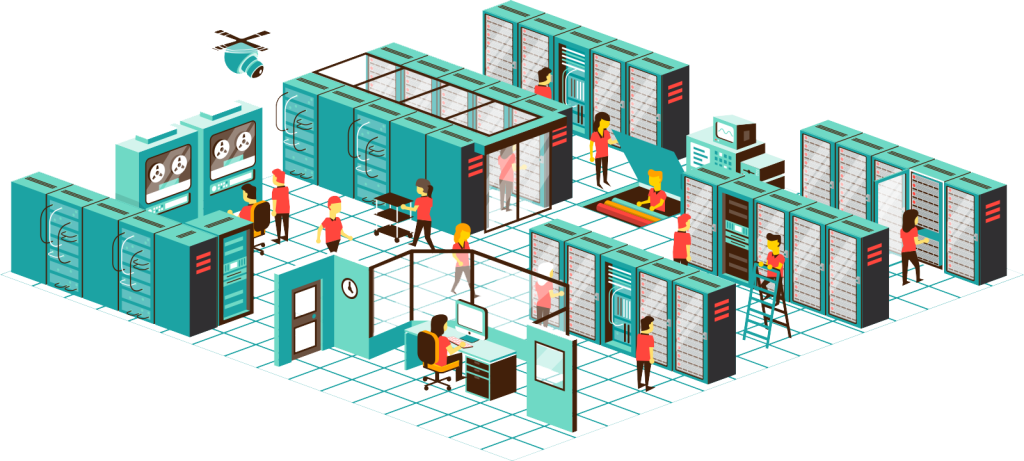CLOUD Computing
The Cloud refers to servers that are accessed remotely over the network. Cloud is a version of computing where servers, storage, networks, developmental tools, and software application are enabled through the internet. Cloud servers are located in Data Centers over the world and are meant to operate as a single ecosystem.
ADVANTAGES OF CLOUD FOR BUSINESS
- Improved Scalability – You can easily scale resources and storage up to meet your need without investing in physical Infrastructure. They can easily scale down if the resources are not being used.
- Advanced Security – Security for cloud computing centrally manages all our applications.Data stored through a cloud network is encrypted, making it inaccessible to unauthorized users.
- Better Collaboration – Data stored in cloud storage enables people to access across the world, anytime and anywhere until they have an internet connection. Thus, people can access these servers from anywhere enabling remote working mode.

COLOCATION
A Colocation is a facility in which an organization rents or leasing spaces from a third-party data center for servers and other computing hardware. In general, colocation bundles up space, power, network, cooling, bandwidth, and physical security.
ADVANTAGES OF COLOCATION FOR BUSINESS
- Improved Connectivity – Colocation data centres have fully sustained network connection ensuring that customers’ business crucial applications must run uninterruptedly.
- Upgraded Network Security – Data Centers have better network security which includes the latest firewall and DDOS protection and prevents their customer system from unauthorized access
- Redundant Power Supply – The colocation data center offers facilities with multiple power grids, fuel generators, and battery backup systems.
- Budget Cooperative – Most probably with colocation it will be less inexpensive compared to building a floor within an organization that has premium bandwidth, installing racks and cages along with the HVAC cooling unit.

Comparison of Colocation and Cloud
- The data and how they are stored is the main difference between Cloud and Colocation. Cloud providers will host the cloud servers and the data are virtually managed. Instead of owning the servers as a colocation facility, they lease the space to the businesses.
- Cloud providers offer shared virtual public resources and Colocation share space within the data center but do not share the resources within a cage or racks.
- Public and private cloud has managed hosting providers, and multi-tenant service. Colocation also has multi-tenant service, however they do not offer managed service to their tenant.
- Colocation provides a high level of security, in form of physical safeguard for the equipment stored by customers in the facility. Cloud service security measures are different as they are virtual instead of physical security.
- Colocation improves network performance, from faster speeds to uninterrupted connectivity. Data centers provide cost-effective connections to multiple service providers and redundant network solutions to ensure your business-critical applications run as smoothly as possible.
- Organizations of every type, size, and industry use cloud solutions for a wide variety of use cases, such as data backup, disaster recovery, email, virtual desktops, software development, and testing, big data analytics, and customer-facing web applications. Hence the options for business improvements
CONCLUSION
Both Colocation and Cloud services are best in their terms. Many business organizations use both services, and some use either one of them, depending on their specific business requirements and needs. Cloud service would be a cheaper solution and useful in terms of scalable solutions as most service providers office Pay-as-use model.
![]()
